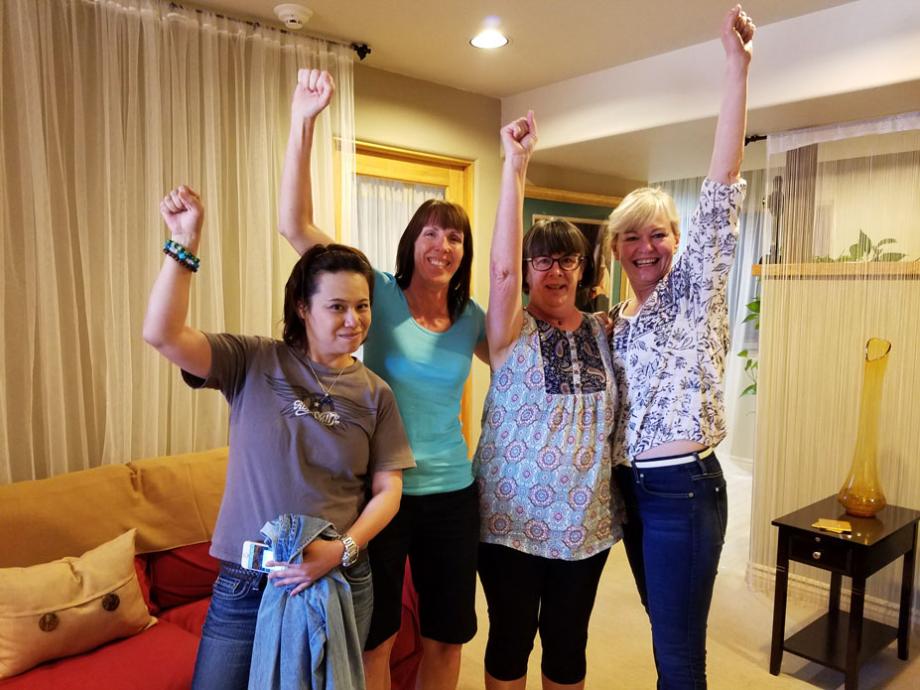Can Group Retreats Help Me Improve My Mental Health?
In today's fast-paced and demanding world, mental health concerns have become increasingly prevalent. Stress, anxiety, depression, and burnout are just a few of the challenges that many individuals face on a daily basis. While traditional therapies and self-care practices can be beneficial, group retreats have emerged as a powerful tool for enhancing mental well-being and promoting personal growth.

Understanding Group Retreats
Defining Group Retreats And Their Purpose
Group retreats are immersive experiences that bring together individuals with similar goals or interests in a supportive and nurturing environment. These retreats typically involve a combination of activities, workshops, and guided sessions designed to facilitate personal growth, healing, and transformation. The purpose of a group retreat is to provide participants with a dedicated space and time to focus on their well-being, disconnect from daily stressors, and connect with like-minded individuals.
Types Of Group Retreats
- Mindfulness Retreats: Focus on cultivating mindfulness and presence through meditation, yoga, and other mindfulness practices.
- Yoga Retreats: Combine yoga classes with other activities such as hiking, swimming, and spa treatments.
- Nature-Based Retreats: Immerse participants in natural surroundings to promote relaxation and connection with the environment.
- Wellness Retreats: Offer a holistic approach to well-being, including healthy饮食, exercise, and stress management techniques.
- Spiritual Retreats: Provide an opportunity for spiritual exploration and reflection through meditation, prayer, and other spiritual practices.
Common Elements Of Group Retreats
- Shared Experiences: Group retreats foster a sense of community and belonging through shared activities and experiences.
- Group Activities: Retreats often include group workshops, discussions, and activities that encourage participants to connect with each other and explore common themes.
- Expert Guidance: Group retreats are typically facilitated by experienced guides, teachers, or therapists who provide guidance and support throughout the retreat.
Benefits Of Group Retreats For Mental Health
Stress Reduction
Group retreats offer a break from daily stressors and allow participants to recharge and rejuvenate. Studies have shown that attending a group retreat can significantly reduce stress levels, improve sleep quality, and promote overall relaxation.
Improved Emotional Well-being
Group retreats create a safe and supportive environment for participants to explore their emotions, process difficult experiences, and cultivate self-awareness. Through guided exercises, workshops, and group discussions, participants can gain insights into their emotional patterns and develop healthier coping mechanisms.
Enhanced Mindfulness And Presence

Group retreats often incorporate mindfulness practices such as meditation, yoga, and breathing exercises. These practices help participants cultivate mindfulness and presence, which can lead to reduced stress, improved focus, and greater appreciation for the present moment.
Increased Social Support
Social connection is a crucial aspect of mental well-being. Group retreats provide an opportunity for participants to connect with like-minded individuals, share their experiences, and build a supportive community. This sense of belonging and social support can be particularly beneficial for those struggling with isolation or loneliness.
Personal Growth And Transformation

Group retreats offer a unique opportunity for personal growth and transformation. Through self-reflection, guided exercises, and group interactions, participants can gain insights into their strengths, weaknesses, and areas for improvement. This process can lead to significant positive changes in attitudes, behaviors, and overall well-being.
Choosing The Right Group Retreat
Factors To Consider
- Retreat Type: Consider the type of retreat that best aligns with your interests and goals (e.g., mindfulness, yoga, nature-based, wellness, spiritual).
- Location: Choose a retreat location that is conducive to relaxation and rejuvenation, whether it's a peaceful countryside setting or a serene beach destination.
- Duration: Decide on the length of the retreat that fits your schedule and needs. Some retreats are weekend getaways, while others may last for several days or even weeks.
- Cost: Group retreats can vary in price, so it's important to consider your budget when selecting a retreat.
Research And Preparation
- Research Different Retreats: Read reviews, testimonials, and online articles to gather information about different group retreats.
- Talk to Your Doctor: If you have any specific health concerns or conditions, consult with your doctor before attending a group retreat.
- Prepare Physically and Mentally: Pack comfortable clothing, toiletries, and any necessary medications. Additionally, take some time to mentally prepare for the retreat experience by setting intentions and practicing self-care.
Group retreats offer a powerful and transformative approach to improving mental health and promoting personal growth. By providing a supportive environment, shared experiences, and expert guidance, group retreats can help participants reduce stress, improve emotional well-being, cultivate mindfulness, increase social support, and embark on a journey of personal growth and transformation. When choosing a group retreat, it's important to consider your individual needs and preferences to ensure a meaningful and beneficial experience.
If you're struggling with mental health concerns or simply seeking a deeper connection with yourself and others, a group retreat may be a valuable investment in your well-being. Take the time to explore different retreats, prepare adequately, and embrace the opportunity for positive change and lasting transformation.
YesNo

Leave a Reply